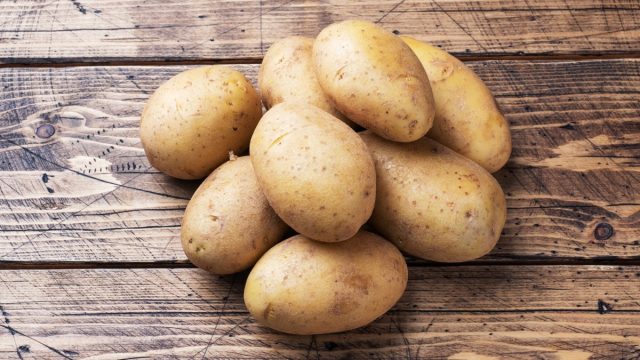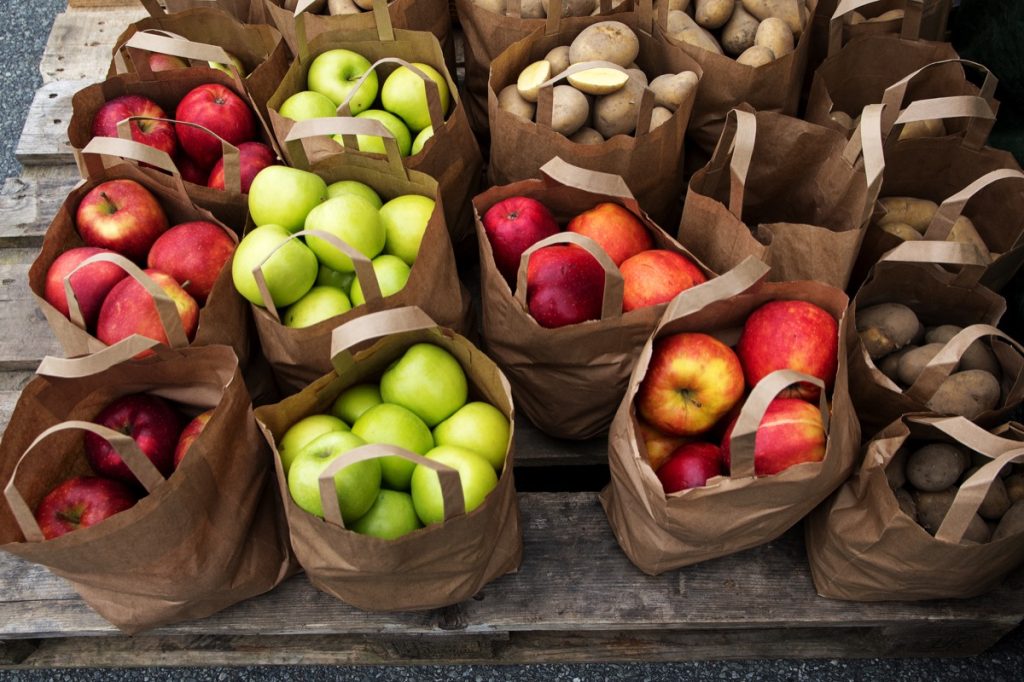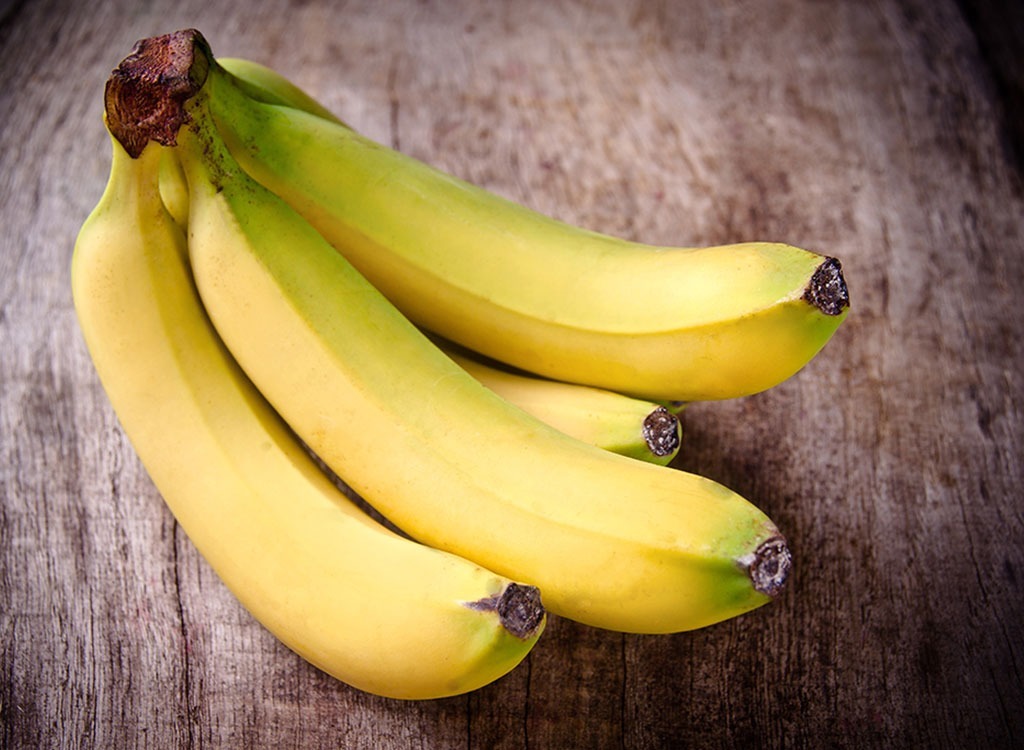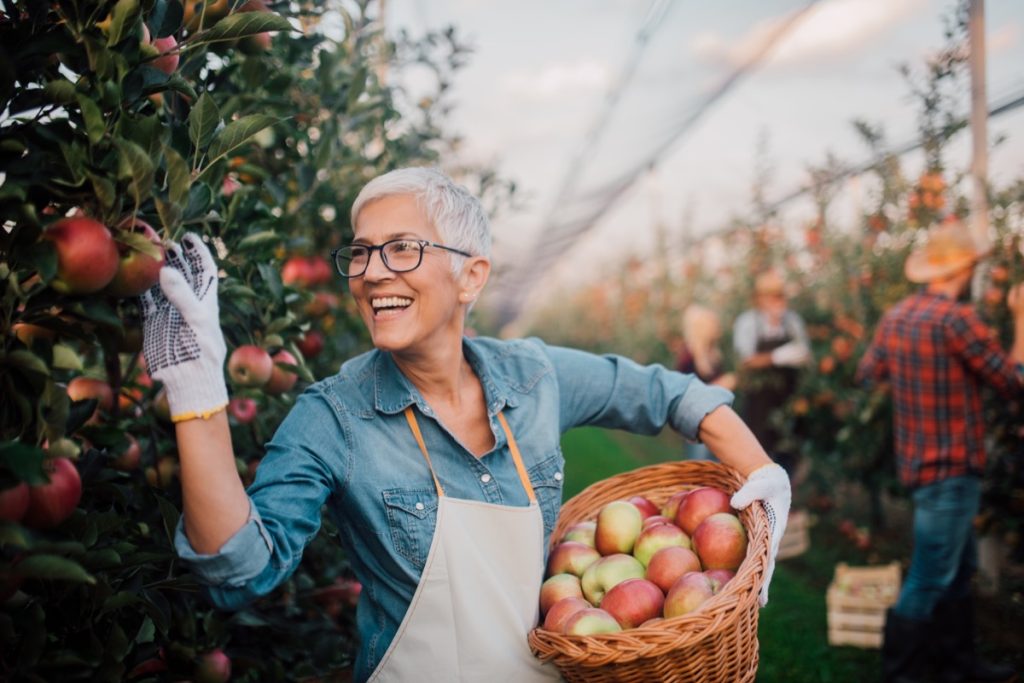Never Store Your Potatoes Near This One Thing, Experts Say

Potatoes are one of America’s favorite vegetables, and a quick and easy food staple to have on hand. But experts say that many of us are making a storage mistake that causes our spuds to spoil sooner. By keeping them near certain other produce items, potatoes tend to turn bad in a matter of days, prematurely sending them to your trash can or compost bin. Read on to find out which food item you should never store your potatoes near and how to make them last longer.
RELATED: If You Notice This on a Potato, Don’t Eat It, Experts Warn.
Never store your potatoes near your apples.

If you want your potatoes to stay fresher for longer, there’s one fruit you should never store them near: apples. According to vegetable gardening site Harvest to Table, apples produce high levels of ethylene gas, which cause potatoes to spoil prematurely.
“The more ripe an ethylene-producing fruit or vegetable is, the more gas it produces…If certain produce items are nearby, the gas will lead them to ripen more quickly as well,” reports Business Insider, noting that some produce is even sprayed with ethylene to encourage it to ripen more quickly.
RELATED: Never Wash These 4 Foods Before Cooking Them, CDC Warns.
Instead, store them in a cool, dark place away from your other fruits and veggies.

The crisper drawer is the best place to store your apples, while potatoes are known to shrivel in such a cold, dry environment. Instead, you should keep potatoes in a cool, dark, ventilated place, such as a cabinet, pantry, or root cellar, if you have one.
Potatoes that have gone bad may begin to turn green or give off a bitter, noxious smell due to the presence of the toxin solanine. They may also grow “eyes,” shrivel, or develop a softer texture—all signs of aging. If you notice any of these signals of spoilage, throw your potatoes out now.
Apples aren’t the only fruit to give off ethylene gas.

While apples give off particularly high levels of ethylene gas, they’re not the only type of produce to have such an effect. Apricots, avocados, bananas, melons, mangoes, onions, peaches, pears, plantains, plums, and tomatoes should be stored separately from other produce to avoid rapid ripening and early spoilage.
However, if there’s a fruit or vegetable that you would like to ripen sooner, you can strategically store one of these items nearby to expedite the process.
For more tips sent directly to your inbox, sign up for our daily newsletter.
The fruit’s variety and when it is harvested can determine how much ethylene it gives off.

According to experts from The University of Maine, harvesting fruit later in the season can lead to overproduction of ethylene gas. In particular, apples harvested after they have ripened will not only decompose faster, but will also affect other produce stored nearby. “When harvested after the rapid rise in ethylene, they quickly soften and senesce in storage,” the university’s experts note. “For apples that will be stored longer than two months, it is imperative to harvest them before the level of ethylene begins its rapid increase.”
Additionally, the type of apple can determine whether it produces more or less ethylene. “Some apple varieties such as McIntosh produce prodigious amounts of ethylene and are difficult to store once this occurs,” the university’s experts explain.
RELATED: Never Make This One Food With Your Instant Pot, CDC Says.